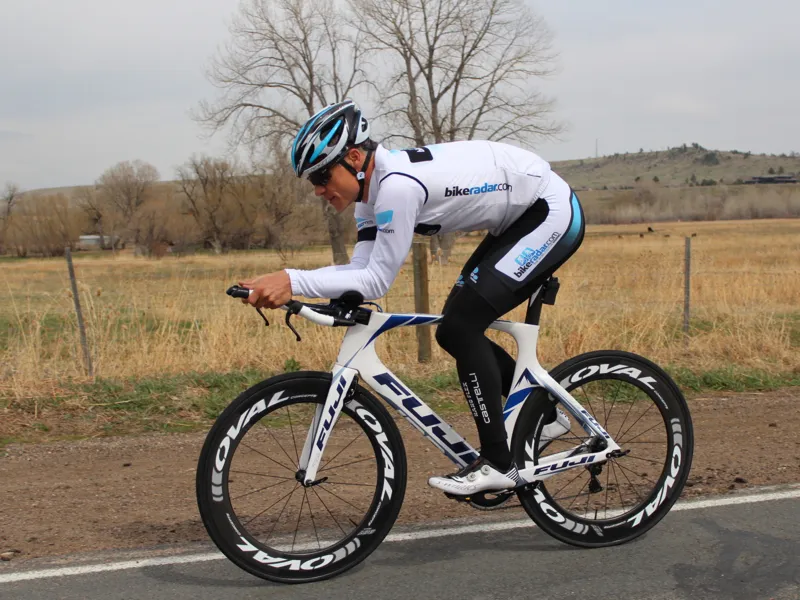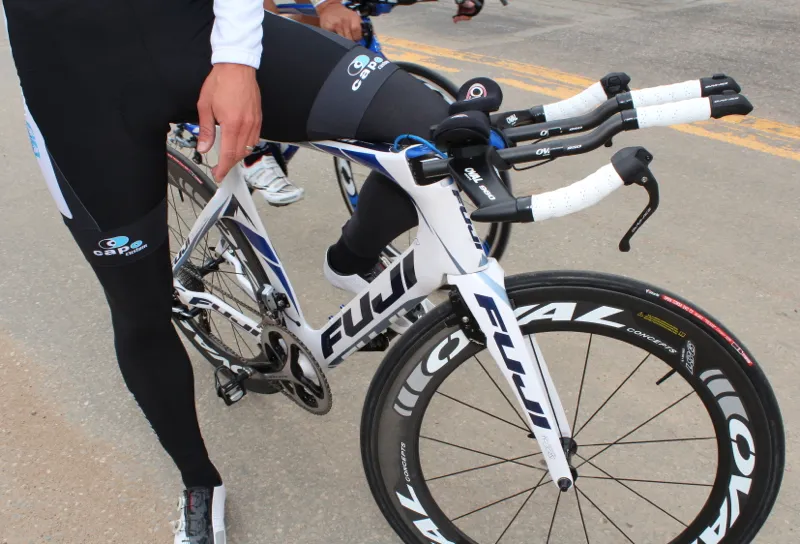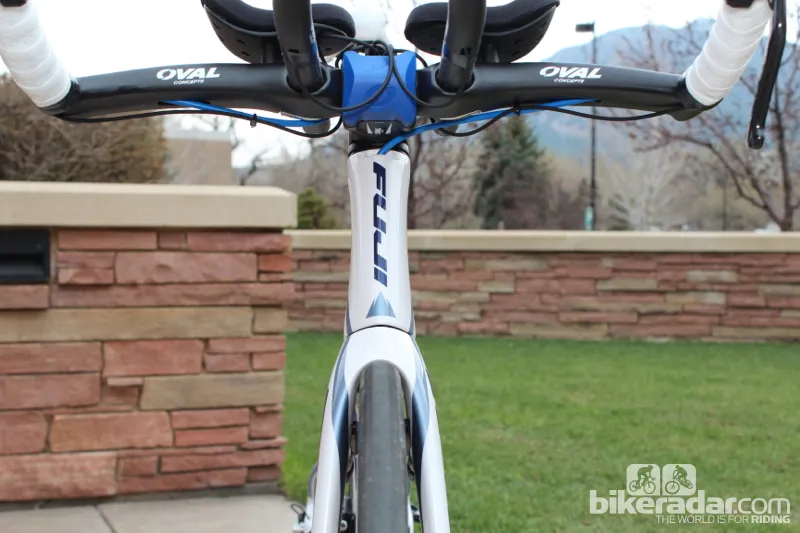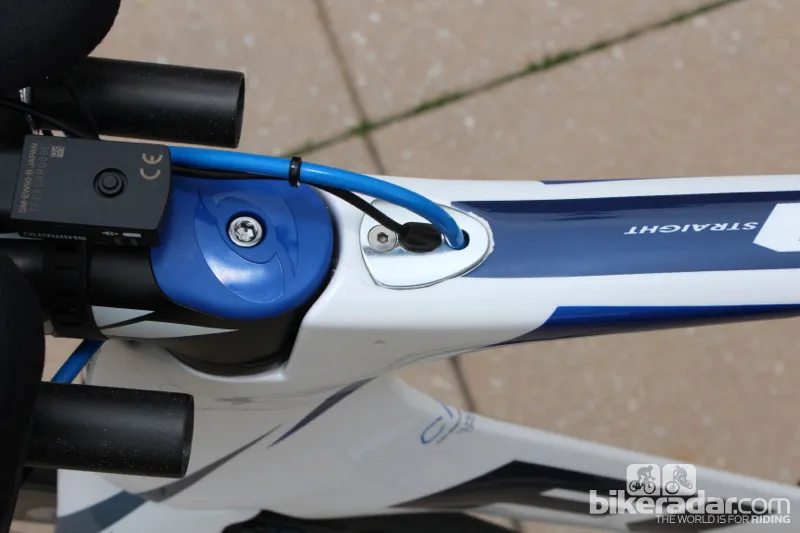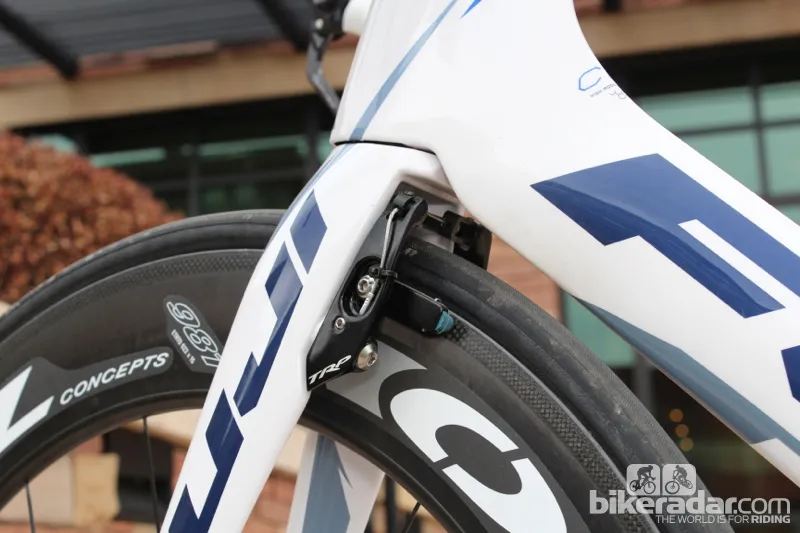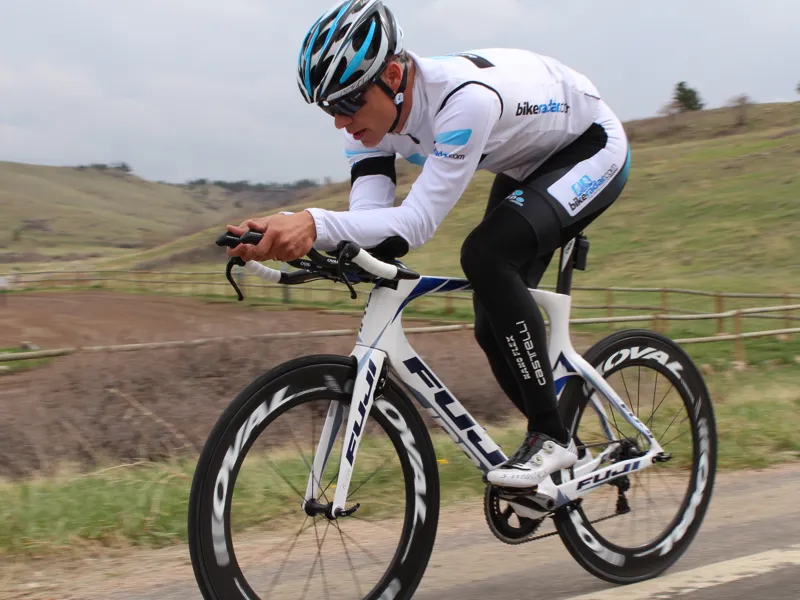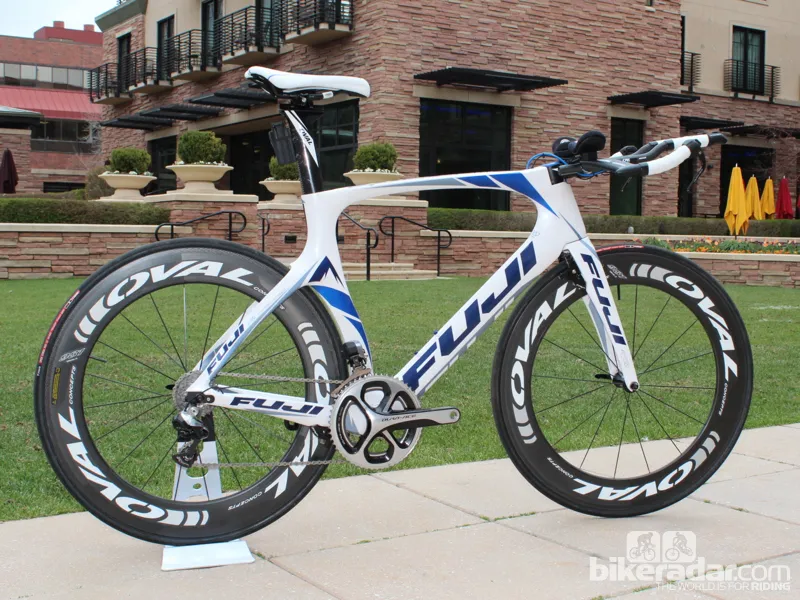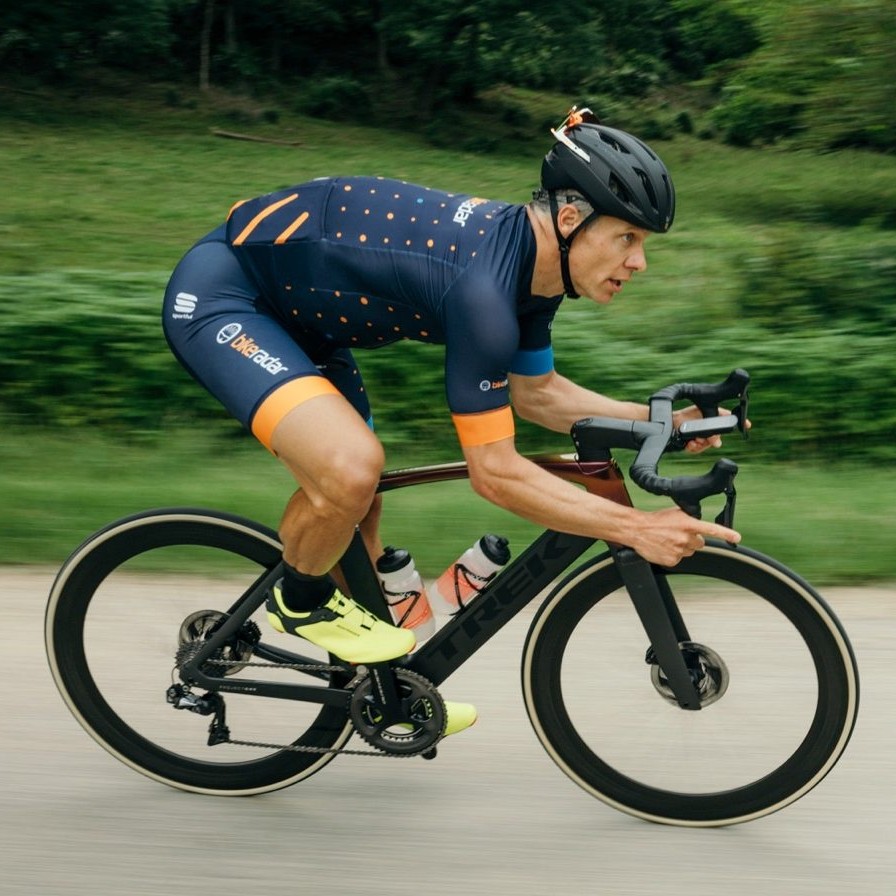Launched last month, the 1.1 sits at the top of the five-bike Fuji Norcom Straight line-up. The bikes are designed to be highly adjustable – in fact, Fuji say they offer more positioning variations than any other high-end TT or triathlon bikes out there. So, does the 1.1 deliver?
Ride & handling: Set to fit, and Di2 goodness
We only had a single one-hour ride aboard the Norcom Straight 1.1, so we can't speak to the long-term comfort. But we can say that, after a few minutes of wrenching, we were able to adjust the cockpit and saddle exactly to our liking, and were quite cosy for the time in the saddle. That's certainly not always the case for such machines.
You can read more about the various adjustment options in our original news story. One thing isn't adjustable, however: the Oval 960 base bar and extensions are fixed at the same angle.
So while you can adjust the length and rotation of the extensions separately, to tip them up you have to tip up the base bar, or vice versa. This wasn't an issue for us, but certainly could be for someone who likes to run the extension at an upward angle while keeping the base bar flat. The frame is certainly stiff, both laterally and vertically.
Shimano Di2 is a killer group for time trial and triathlon. Being able to shift from both the cowhorns and the extensions makes standard extensions-only shifting feel quite inferior. Likewise, a front derailleur that autotrims to the movement of the rear derailleur is a welcome change from having to manually adjust - especially when riding on the cowhorns from a stop, through a turn or up a steep hill.
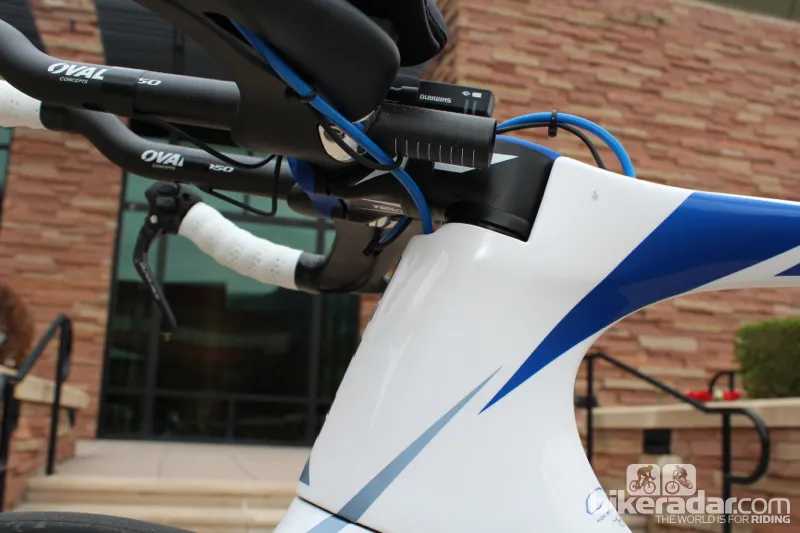
The proprietary stem sits flush with the top tube - in terms of height and width
Speaking of steep hills, the 1.1 comes with a Shimano 9070 Dura-Ace 54/42 crankset - a big meaty option for flat courses, but perhaps not the best for all riders on all courses. (The 1.3 has an Ultegra Di2 53/39; the 2.3 has a 52/36 and the 2.5 has a 50/34. A correlation between spending power and pedaling power may not exist, but it appears Fuji feels that way.)
While most companies are often quick to make claims about the aerodynamic gains of their bikes - 9 percent faster than last year, 15 percent faster than the competition - the fact is that you the rider make up the bulk of the aerodynamic drag, which is about 70 to 80 percent according to most educated estimates.
The Oval 981 wheels are fast. While only a wind tunnel could tell you how they compare against something like Zipp 808s, we can tell you that they're certainly quicker than any of the standard box-section training wheels that come with many time trial/triathlon bikes these days.
While crosswinds generated a side pressure, it was never an uncomfortable feeling while on the extensions, perhaps due to the heavily rounded spoke beds. The braking was decent, but we only tried it in the dry.
And, speaking of braking, Fuji has tucked the brake calipers out of the wind with a pair of TRP aero TTV calipers. The side-pull brakes offer usable power and work with standard road pads.
Frame & equipment: Adjustable setup and decent value
With the new Fuji Norcom Straight, it was refreshing to hear the time trial/triathlon bike pitched as "the most adjustable superbike" on the market. Is that true? Who knows, but we did find the bike to be highly adjustable - and therefore fast and comfortable. Plus, it's relatively good value with Dura-Ace Di2 and deep (81mm), ready-to-race carbon clinchers.
Coming in five sizes and five models, the Norcom Straight runs the gamut from a US$2,299/£1,850 model to the US$7,499/£6,300 1.1 model we tested.
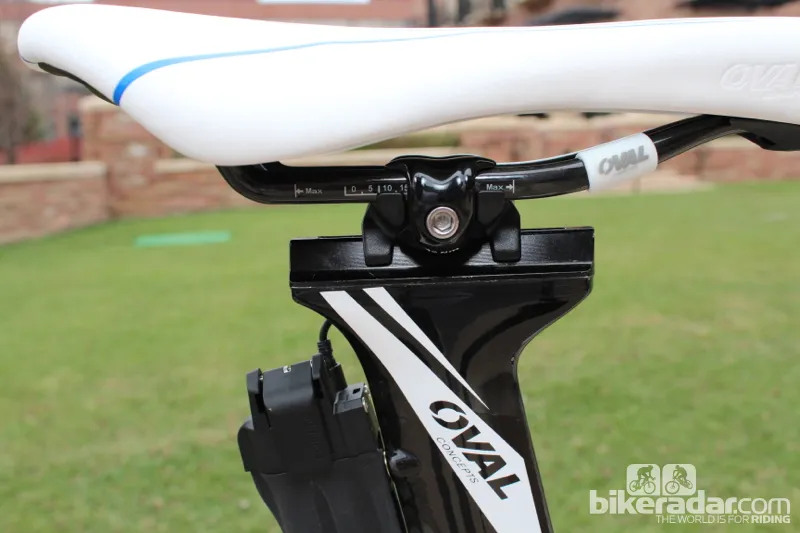
The Oval seatpost features enough fore-aft adjustment to effectively alter the seat tube angle between 74 and 81 degrees
Although far from inexpensive, the Norcom Straight 1.1 is notable in that it offers Shimano's best electronic shifting group and deep carbon wheels at a price far less than many top-end TT/tri bikes. Let us provide two examples. One, Cervélo's top P5 Six bike is US$10,000, and while it comes with Di2, it also features US$499 training wheels - not the Gucci Cosmic Carbones shown on its website. And two, the US$6,600 Specialized Shiv Pro Ultegra Di2 comes with Shimano's second-tier electronic group and DT Axis 2.0 training wheels (probably about $300 a set).
Granted, Fuji specs its Oval house-brand 981 carbon clincher here, which at 1,800g isn't the world's lightest. But it's still a perfectly raceable deep carbon wheelset that you can train on. For those who don't want to buy a bike - and then a multi-thousand-dollar aero wheelset - this is a good package.
